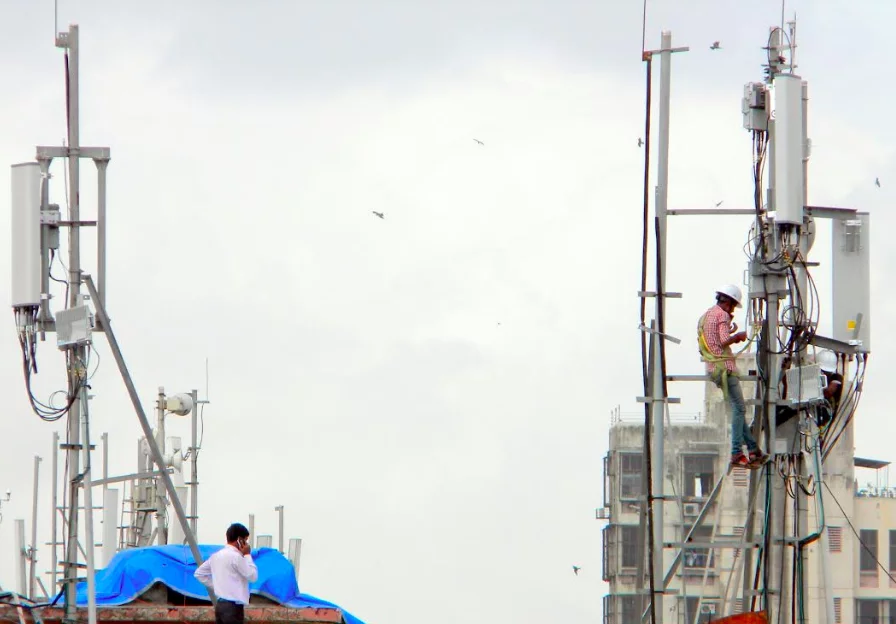Indian Telecom Service Providers (TSPs) have invested about Rs 9,27,000 crore while Foreign Direct Investment (FDI) in the telecom industry has increased from Rs 20,000 crore in FY15-16 to approximately Rs 67,000 crore in the first three quarters of FY16-17, contributing towards building an efficient infrastructure to provide accessible and affordable service to customers, according to an ASSOCHAM-KPMG joint study. Telecom service providers (TSP) play a vital role in providing major support services required for swift growth and transformation of multiple sectors such as IT, insurance, education, health, public sector, etc., reveals the ASSOCHAM-KPMG joint study.

A fairly conducive regulatory environment has been created for TSPs through the implementation of new policies and regulatory framework by Telecom Regulatory Authority of India (Trai) TSPs gross revenue stood at approximately Rs 188,000 crore with a decline of 2.68% in 2016-17, noted joint study. The overall data traffic in India went up by 28% of the total data traffic pan-India in a year since launch. In India, 4G subscribers have reached the mark of approximately 160 million as of March 31, 2017.
As per the study, India is now one of the biggest smartphone markets in the world in terms of volume with an increase in the usage of data services leading to a rapid increase in smartphone sales. Four out of every 20 mobile subscribers in metro circles have a 4G enabled smart device and 11 have a 3G enabled smart device.
Social media and messaging application drove data consumption with nearly 90% consumers accessing applications on mobile devices. Videos continued to be the main growth engine for data traffic with nearly 65% contribution, revealed the study.
"India’s telecom industry which is a major contributor to the country’s GDP is going through challenging times where maintaining a balance between market dynamics and time to deliver has created a bottleneck for TSP’s. Tariff wars, increasing debt burden, spectrum license fees and new types of internet-based players etc. have fuelled this situation resulting in a phase of financial stress in the industry. The telecom industry at this point of time has a debt burden of close to INR 5 lakh crores in its quest to provide state of the art infrastructure and buy spectrum," said ASSOCHAM in a press statement.
This debt increase has been primarily driven by high spectrum procurement costs from five successive auctions wherein the highest bid/sale price at one auction acts as a floor price for the succeeding auction. Aggressive participation of service providers in spectrum auctions has significantly increased the debt burden, it further added.
Furthermore, it said that the declining trend in the profitability of the TSPs is likely to continue due to various reasons like entry of greenfield TSPs as against the existing brownfield operators which will have to undertake huge investments for updating their existing infrastructure, participate in spectrum auctions, imposition of multiple taxes and levies such as Spectrum Usage Charges (SUC), Universal Service Obligation Fund (USOF) contribution and license fee.
The government may consider deliberations on the same with TSP’s while formulating policies and regulations to address challenges faced by all contributors/ verticals of the sector in its entirety. Telecommunications, being an underlying service to the majority of industries contributes significantly towards their operating costs. Levy of higher taxes (recent increase by 3 % putting the telecom sector under the 18% tax slab) on telecom industry may lead to an overall increase in the cost of doing business for other sectors and may impact affordability for the end customers. Thus, reduction in service tax may be considered by the government, urges ASSOCHAM.
Spectrum Usage Charges (SUC) is levied from the time when the spectrum was bundled with the license itself. With the introduction of spectrum auctioning, the license and spectrum are now separately granted with the licensee having to bid for the available spectrum at market-determined prices. For the spectrum allotted, the TSPs have to pay the price of the spectrum as decided in the auction and annual SUC (a proportion of their Adjusted Gross Revenue – AGR) to the government.
Since the purchase price of the spectrum is now market determined and considerably higher than before, SUC adds on to the financial burden of TSPs. Further, since SUC is a fixed proportion of the AGR, the better a TSP performs in terms of revenue, the more they are charged as SUC.















